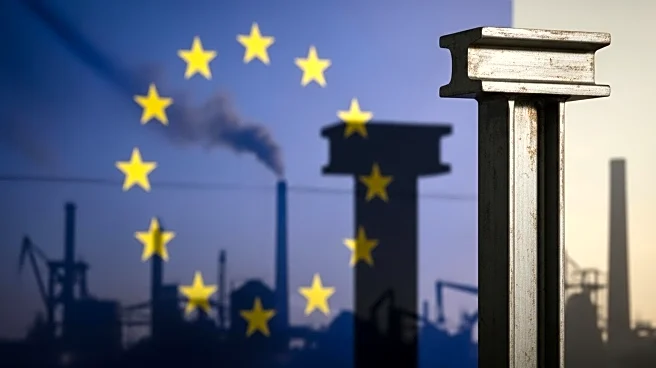What is the story about?
What's Happening?
The European Union has announced plans to reduce tariff-free quotas on imported steel and increase tariffs from 25% to 50% on any excess imports. This decision has raised concerns within the U.K.'s steel industry, which is already under pressure from global overcapacity. The proposed measures are seen as potentially devastating for the U.K. steel sector, which is struggling to remain viable. The announcement has led to a rise in stock prices for regional steel producers, with companies like ArcelorMittal, SSAB, and Thyssenkrupp seeing significant gains. However, the automotive sector has reacted negatively, with fears that increased steel prices could impact vehicle manufacturing costs.
Why It's Important?
The EU's decision to adjust steel import tariffs could have significant implications for the U.K. economy, particularly its steel industry. The increased tariffs may lead to higher production costs for industries reliant on steel, such as automotive manufacturing, potentially affecting competitiveness and profitability. The move could also strain trade relations between the U.K. and the EU, as the U.K. seeks to protect its domestic industries. The automotive sector, already facing challenges from weak sales in key markets like China, may experience further financial pressure, impacting jobs and economic stability.
What's Next?
Stakeholders in the U.K. steel industry are likely to lobby for government intervention to mitigate the impact of the EU's tariff changes. The U.K. government may need to explore measures to support the steel sector, such as subsidies or trade negotiations with the EU. The automotive industry will also be closely monitoring the situation, as increased steel costs could necessitate price adjustments or cost-cutting measures. The EU's decision may prompt further discussions on trade policies and the balance between protecting domestic industries and maintaining competitive markets.

















